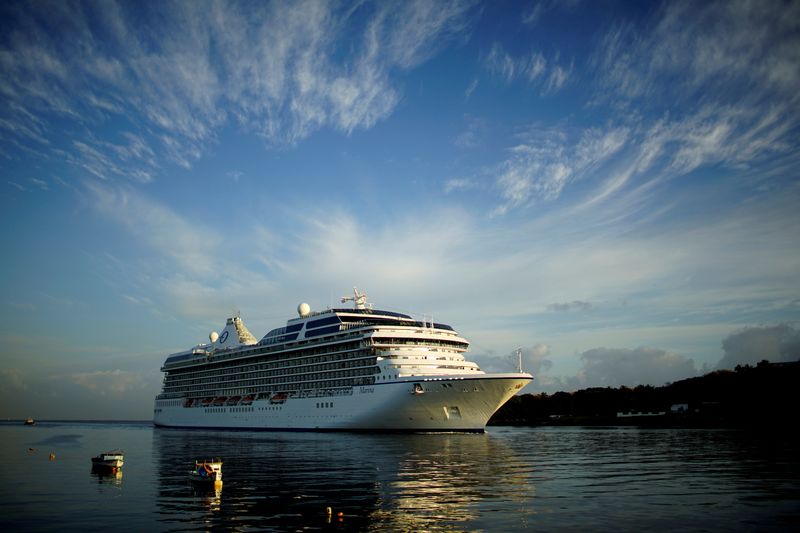By Brian Ellsworth
MIAMI (Reuters) - Norwegian Cruise Line (NYSE:NCLH) must pay $110 million in damages for use of a port that Cuba's government confiscated in 1960, a U.S. judge ruled on Friday, a milestone for Cuban-Americans seeking compensation for Cold-War era asset seizures.
The decision by U.S. District Judge Beth Bloom in Miami follows her March ruling that the use of the Havana Cruise Port Terminal constituted trafficking in confiscated property owned by the plaintiff, Delaware-registered Havana Docks Corp.
"Judgment is entered in favor of Plaintiff Havana Docks Corporation and against Norwegian Cruise Line Holdings, Ltd," reads the decision.
"Plaintiff is awarded $109,848,747.87 in damages," it says, adding that Norwegian should also pay an additional $3 million in legal fees and costs.
Norwegian Cruise Line did not immediately respond to a request for comment.
Cuban President Miguel Diaz-Canel has harshly criticized the Helms-Burton Act, describing it as an extra-territorial violation of international law.
Havana Docks had also sued cruise lines Carnival (NYSE:CCL), Royal Caribbean (NYSE:RCL) and MSC under the Helms-Burton Act, which allows U.S. nationals to sue over use of property seized in Cuba after 1959.
The ruling could fuel more lawsuits by Cuban exiles pursuing claims, which according to one estimate are worth $2 billion, over asset seizures under late Cuban leader Fidel Castro.
It may also serve as a reminder to multinational firms of the complications that can come with doing business in Cuba.
U.S. cruise ships in 2016 began traveling to Cuba for the first time in decades following a detente negotiated by former President Barack Obama that eased some provisions of a U.S. embargo in place since the Cold War.
But the Trump administration in 2019 ordered a halt to all such cruises amid efforts to pressure Cuba over its support for Venezuelan President Nicolas Maduro, an ideological adversary of Washington.
The Trump administration also allowed U.S. citizens to sue third parties for using property seized by Cuban authorities, a provision of the Helms-Burton Act that had been waived by every previous president since the law's 1996 passage.
Havana Docks says Cuba, which has been subject to a decades-old U.S. trade embargo, never compensated it for the takeover of the property.
It sued the four cruise lines in 2019 in the U.S. District Court for the Southern District of Florida. Bloom in March held that the companies were liable for damages under the Helms-Burton Act, also known as the Libertad Act.
According to the U.S.-Cuba Trade and Economic Council, a non-profit that provides information on relations between the two countries, the 5,913 certified claims for property seized in Cuba represent nearly $2 billion in liability.
Forty-four lawsuits have been filed under Title III of the Helms-Burton Act, the organization says.
"For those current plaintiffs of Cuban descent, (the decision) will give them a moment of satisfaction," said John Kavulich, the group's president. "It'll give them a moment to say 'You can run but you can't hide,'" said Kavulich.
